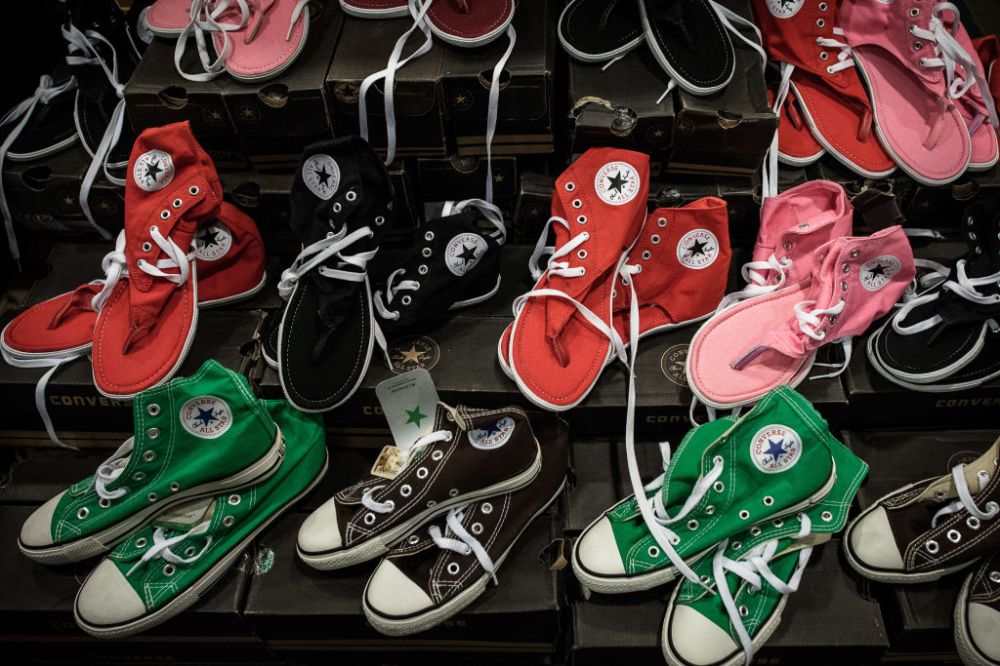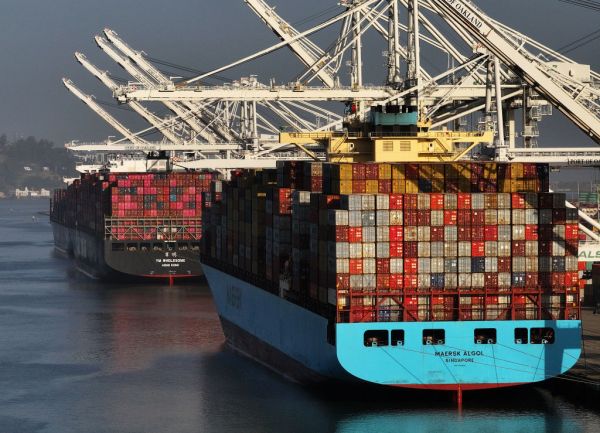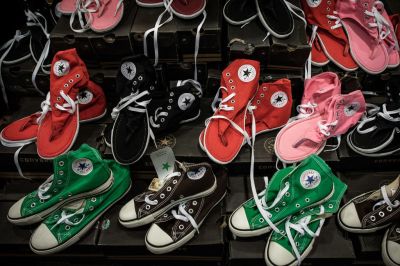The sun is behind me.
Ted Hughes, “Hawk Roosting,” 1960
Nothing has changed since I began.
My eye has permitted no change.
I am going to keep things like this.
Donald Trump loves tariffs. Joe Biden loves tariffs. The next president elected to lead these United States of America is—probably!—going to be a guy who loves tariffs. He will be surrounded by people who love tariffs or by people who will, for the right salary and an occasional chance for throne-sniffing, pretend to love tariffs.
There’s a whole hatchery of trade hawks in the making out there. As Ted Hughes knew, hawks don’t have to be particularly smart or have good arguments on their side:
My manners are tearing off heads—
The allotment of death.
For the one path of my flight is direct
Through the bones of the living.
No arguments assert my right.
There are a few different ways of thinking about trade restrictions. Some of them are plausible, and a few are even necessary: That “one-sentence free-trade agreement” that my libertarian-minded friends dream of (“There shall be free trade between the United States and x”) is never going to be, and there are good reasons for that. Genuinely free trade means that goods and services of foreign origin compete in the U.S. market on the same terms as goods and services of U.S. origin, which is not going to be the case for sensitive military and intelligence provisions—we aren’t going to build Air Force fighters in ChiCom-owned factories, and we aren’t going to have ChiCom-owned firms doing the IT work for the Treasury Department or the CIA. (We won’t even contract that sort of thing out to the Swiss, as attractive as such a proposition might be: SIG Sauer, the armorer that is building the new generation of U.S. battle rifles, is kinda-sorta a German-Swiss company, but most of its employees and operations are in its U.S.-based subsidiary. I’m happy to have Swiss-German types building the rifles, but what I really want them to do is take over Amtrak.) Where you draw the line on that kind of thing can be tricky.
For example, I don’t think it matters very much for national security purposes if the socks issued by the Navy are made in a foreign factory—even a ChiCom-owned factory!—though there may be a point of pride there. I think security-sensitive goods should be defined relatively narrowly. On the other hand, there are those who argue for a very broad interpretation of security sensitivity, one that encompasses not only manufactured goods used by military and intelligence agencies but also critical industrial inputs of all kinds: rare-earth minerals, microprocessors, steel—hell, Sen. Marco Rubio thinks sugar is a national-security priority. (It is a priority to some of his cronies in Florida, for sure.)
The problem with that tendency toward strategic autarky is that it isn’t … strategic. There are costs and risks associated with importing strategic goods, but the costs and risks of attempting to create a hermetically sealed domestic market for such goods are much greater.
As it stands, U.S. steel consumers have access to the output of about 600 crude steel plants around the world, only 39 of which are in the United States. The security implications of that should be obvious enough: Crippling the U.S. steel industry would be a big undertaking, but crippling the output of every U.S. steel-trading partner simultaneously would be a positively titanic one. (While China does have a very large footprint in the worldwide steel industry, the biggest sources of imported steel in the United States are our neighbors—the nefarious Canadians in the No. 1 spot, Mexico in the No. 3 spot—along with Brazil.) Having lots of trade partners and established trade relationships in lots of markets means the United States has a lot of options. China might boycott exports to the United States (enjoy that cash crunch, Chairman Xi) or even use military force to interrupt trade with Japan and Korea, but Beijing is unlikely to be able to control both the Atlantic and the Pacific while waging war with a technologically, militarily, and economically superior United States. On the one hand, you don’t want to set yourself up for sabotage or blackmail. On the other hand, you don’t want to unnecessarily limit your options as a strategic matter or, on the economic front, unnecessarily reduce your standard of living.
Which is a longish way of getting around to the big point here: The real problem with free and open trade is not the flow of ordinary goods and services, as intensely as overseas competition may be resented by politically connected domestic firms and industries that would very much like to charge U.S. consumers higher prices or sell them inferior goods. The problem—and, as the trade hawks rightly insist, it is most urgently a problem with China—is not trade per se at all, but abuses that are to some extent enabled by trading relationships: the theft of intellectual property (IP), the counterfeiting of goods, forced technology transfers, and Beijing’s generally dishonorable behavior when it comes to its obligations to multinational trade organizations and agreements.
There are many, many idiotic complaints put forward about Chinese trade practices (“dumping,” etc.), but complaints about IP theft are not among those. Chinese IP theft is (almost) hilariously relentless. You have to kind of love that the Chinese had the market-bestriding chutzpah to very publicly rip off the Huntsman Corporation while Jon Huntsman Jr. was serving as U.S. ambassador to China. Say what you will about the tenets of Maoist socialism, at least it’s an ethos.
You know that story? From the Wall Street Journal:
Regulatory panels, packed with industry experts, must approve many chemicals before they can be produced in China and require detailed information on formulas and production processes, say U.S. trade groups and chemical firms. “Enough information to duplicate the product,” is how the American Chemical Council trade group put it in a filing to the U.S. government.
For Huntsman, these panels have drilled down on specialized knowledge, such as how it makes plastics with high transparency and elasticity—the kind of material often used for making sports shoes—people close to Huntsman say. Soon after those experts conducted their evaluations, local competitors used the same kind of technology in their own products, they say.
Huntsman is battling over a crown jewel of its business, a black dye used in textiles that is less polluting to make. It filed a lawsuit in Shanghai against a Chinese company for infringing a patent on the dye in 2007. Huntsman then found a court-appointed review panel stacked against it, it said in a 2011 complaint it filed with the U.S. Commerce Department.
The three panel members included an engineer from the company Huntsman was suing, another from a local dye-research group and a third who once worked at a local dye firm, according to the complaint and people with knowledge of the matter.
Those “review panels” were doing their work while the U.S. ambassador to China was Jon Huntsman Jr., brother of Peter Huntsman, chairman and CEO of the Huntsman Corporation.
If you would like a small catalog of egregious cases of Chinese theft of American intellectual property, then here is a list from the House Foreign Affairs Committee, helpfully titled “Egregious Cases of Chinese Theft of American Intellectual Property.”
It isn’t just the high-tech stuff—and it isn’t just in China. In 2013, a group of Chinese nationals was arrested running a covert operation in an Iowa cornfield—they were working in the shadows to steal experimental seeds, presumably for the purpose of replicating them. As I wrote about the case: “The cell targeted products from Monsanto, Dupont Pioneer, and LG Seeds. The leader of the group was employed by Beijing Dabeinong Technology Group, a private firm that received funding from the Chinese government for ‘science and technology’ research.”
The difference between the smarter trade hawks and the ... less smart ... trade hawks is that the smarter ones understand that you can’t stop that kind of thing with tariffs or by retreating from the world. You deal with that by intensifying your involvement in multinational trade organizations such as WIPO (the World Intellectual Property Organization), with which the U.S. government has begun an expanded partnership on “standard essential patents,” meaning patents that are necessary to all sorts of technological products and services that require mutual compatibility, from video compression to automotive components to mobile phones.
And you don’t have to be a superpower to prevail: Scotch whisky makers, for example, have spent years fighting for their intellectual-property rights in China, with a great deal of success. In 2023, 15 Chinese counterfeiters were sentenced to terms ranging from six months to six years by a Chinese court for violating Rolex’s trademarks. Swiss watchmakers run what amounts to a very discreet international detective bureau to protect their brands and their IP—which costs money, but securing your rights always does. If the U.S. government wants to help with that, it can help by fortifying, reforming, and improving the institutions through which U.S. firms secure their intellectual property and other rights—vis-à-vis China, certainly, but not only China.
American firms can compete with their Chinese rivals. Except for the ones that can’t—and that’s fine, too: That’s the market’s way of giving companies the bad news about for whom the bell tolls. Contrary to the science-fiction trope, corporations are flimsy things—they come and go: Two cheers for creative destruction.
Put another way: The problem of IP theft is no more an indictment of trade than the problem of highwaymen was an argument against travel. Trade is trade, and thievery is thievery. And where trade creates opportunities for thievery, it is the thievery that is the problem, not the trade.
And Furthermore ...
Really, corporations are flimsy things. If you’ll forgive my quoting myself on the subject of corporations in science fiction, this is from a piece written around the time of Occupy Wall Street, which means the gist of the thing remains correct but some of the figures will have changed:
You would not know it from reading fiction, speaking with Occupy types, or listening to the speeches at the Democratic National Convention, but the corporation as we know it is in decline: The average size of a corporation as measured by personnel has been diminishing since 1975. In 1955 the largest U.S. company, General Motors, employed 576,000 people out of a U.S. population of 166 million; today Exxon Mobil, the largest U.S. company, employs only 82,000 people. Microsoft employs fewer than 100,000 people worldwide; Google employs about 54,000, and Facebook fewer than 6,000.
More significant, the economic footprint of the biggest corporations is contracting. At one point, the market value of U.S. Steel was about 4.5 percent of the U.S. GDP; Exxon Mobil is worth barely half that today. GM’s world market share was about 50 percent in 1960, and its profit was about $8 billion in inflation-adjusted dollars. Today no single automaker has a market share of more than 20 percent in the United States or Europe, and in 2012 there was not one firm in the world with manufacturing profits exceeding GM’s $8 billion level of 1960. The biggest manufacturing-oriented firm in 2011 was General Electric, but half of its profit came from financial services, and at about $5 billion, its manufacturing profit was far less than GM’s was in 1960. In fact, there were only about 20 firms worldwide with larger profits than GM’s 1960 benchmark, most of them technology firms (Google, Apple) and financial groups (JPMorgan, Goldman Sachs).
Only 67 of the firms in the Fortune 500 in 1955 remained there by 2011. And the rate of corporate extinction is accelerating. Corporations are shorter-lived now: In the early 1960s, the average lifespan of a Fortune 500 company was about 75 years; today it is 15 years and declining.
Words About Words
There is no such thing as “Asian cuisine,” in spite of this dopey Salon headline: “Once branded as ‘cheap eats,’ Asian cuisine is finally getting the awards it deserves.” Russia is in Asia. Israel is in Asia. Kazakhstan is in Asia. So is Turkey, mostly. India is in Asia, even if the University of Texas Asian Students Association once told an Indian friend of mine that the club wasn’t really meant for him. We sometimes talk about “Asia” as though it were Japan, China, the Koreas, Vietnam, and maybe Singapore—and never mind, you know, Saudi Arabia or Russia. (Russia is 75 percent Asian by land mass, 80 percent European by population.) And whatever you have to say about the great Arab-Israeli hummus controversy, we can probably all agree that hummus did not originate anywhere near Cape Chelyuskin.
There is no “Native American spirituality” and there are no “African proverbs,” contra Hillary Rodham Clinton. There is no such thing as “European cuisine” or “South American literature.” Human beings are pretty specific in a lot of ways, profoundly influenced by time and place at a scale much smaller and richer than the continental one.
Economics for English Majors
I know that I sometimes sound like I think the answer to all of our economic challenges is free trade and nuclear power, but ... free trade and nuclear power are, or would be, really, really useful! As the Wall Street Journal reports, Century Aluminum of Chicago wants to do something that hasn’t been done since the last days of the Carter administration: build a new aluminum smelter, one that would roughly double the aluminum output of the domestic metals industry. But there is a challenge: paying what promises to be a gargantuan electricity bill. Electricity, according to the Journal, accounts for about 40 percent of the expense of operating an aluminum smelter. The good news for Century—perhaps not great news for taxpayers—is that there are subsidies available. The bad news?
Century is counting on the aggressive build-out of solar- and wind-powered generating capacity now under way to start yielding excess power after 2030, and the company hopes to lock down supply in exchange for a decade’s worth of steady electricity demand from a new smelter.
Much of that renewable-energy capacity isn’t yet connected to power grids, making it difficult for industrial users to access it. Grid-connected renewable energy is expected to attract high demand, said Greg Wittbecker, an aluminum-industry analyst.
That’s right: The big plan is to run massive aluminum smelters off of fairy dust and unicorn juice that isn’t even hooked up to the grid yet. Many of the subsidies that are available to firms such as Century are conditioned on using fashionable forms of energy.
If only there were some kind of reliable, low-cost, zero-emissions source of electricity basically tailor-made for ravenous industrial users such as aluminum plants! There is, of course—our old friend nuclear power, the only practical, dependable source of electricity that produces no meaningful greenhouse-gas emissions while it works (we can talk about “embedded carbon” another time)—but, in spite of some halting steps toward reform and liberalization, there isn’t a ton of new nuclear power coming online.
The case against nuclear power has always been mostly moralistic and aesthetic: all those people walking around with their copies of The Population Bomb as though the book were holy writ, insisting that the only way to save the planet was to get rid of most of the people and all of the capitalism. Of course, there are environmental impacts from nuclear power, just as there are from any power source. There’s the real, if exaggerated, waste-disposal issue, but also the fact that the mines that produce the fuel aren’t especially nice places for a picnic. There isn’t any zero-impact power. But taken as a grown-up matter of calculating trade-offs, nuclear power is such an obvious win when it comes to electricity that only ideologues, religious fanatics, and politicians could oppose it.
And the thing about abundant power is this: There is more at stake than the bottom line on your monthly utility bill. Consumer utility prices are far from being the whole ballgame. Abundant, affordable, sustainable power means that you can run things like aluminum smelters in relatively high-cost countries such as the United States, and that you can do all sorts of other cool, useful, and profitable industrial stuff in a much more economically effective way. Three cheers for lower utility bills, for sure, but this is about shipyards and airplane factories and steel mills, along with data centers and other power-hungry facilities.
Elsewhere ...
“Fashion Advice from Kevin D. Williamson” may sound like an essay nobody ever asked for, but—someone asked. Over at the Wall Street Journal, some thoughts on seersucker and related subjects:
Capitalism is even trying to help us with the problem of summer. Ralph Lauren’s pricey “Purple Label” line now includes trousers that look like tweed but are 50% linen and 13% silk. From the catalog: “Inspired by traditional English tweeds … the fabric was specially developed to offer the same look and sensibility but with lightweight fibers.” With waist sizes up to 42 and running $595 a pair, it’s pretty clear who those pants are made for. Not for 22-year-olds with chiseled abs and regrets about last night’s $72 bar tab at Connolly’s. Those are the trousers you wear to Thanksgiving dinner in Dallas when it’s 81 degrees outside and you’re the kind of guy who sometimes calls your pants “trousers.”
Brioni is offering silk summer suits at $7,300, and Paul Stuart will sell you a beautiful shawl-collared linen dinner jacket for $2,695 for when you have a formal event you don’t want to sweat through. (Who is the worst person in your life? The person who schedules the trifecta wedding: summer, outdoors, and black-tie.)
You can buy my most recent book, Big White Ghetto, here.
You can buy my other books here.
You can see my New York Post columns here.
Please subscribe to The Dispatch if you haven’t.
You can check out “How the World Works,” a series of interviews on work I’m doing for the Competitive Enterprise Institute, here. I recently had a very interesting conversation with an unusually bookish airport baggage handler.
In Conclusion
Joe Biden says that he’ll step aside from the Democratic nomination as soon as “the Lord Almighty” comes down from heaven and tells him to. I do not want to try to read Joe Biden’s mind, much less whatever it is that passes for his soul, but my experience is that that is the sort of thing people say when they don’t really believe that there is a Lord Almighty who does such things. But God is not mocked, and a man of Biden’s age and infirmity should be very careful about what he demands of the Author of the Universe. God has a funny way of answering prayers, at times.







Please note that we at The Dispatch hold ourselves, our work, and our commenters to a higher standard than other places on the internet. We welcome comments that foster genuine debate or discussion—including comments critical of us or our work—but responses that include ad hominem attacks on fellow Dispatch members or are intended to stoke fear and anger may be moderated.
With your membership, you only have the ability to comment on The Morning Dispatch articles. Consider upgrading to join the conversation everywhere.